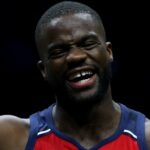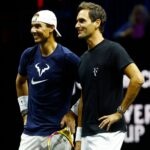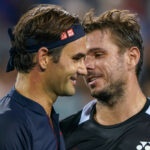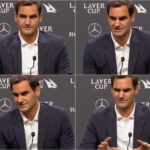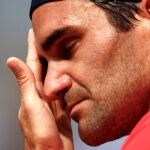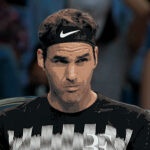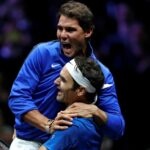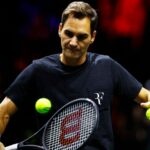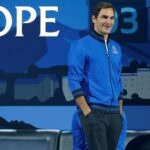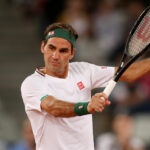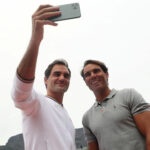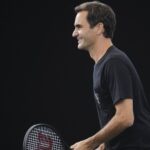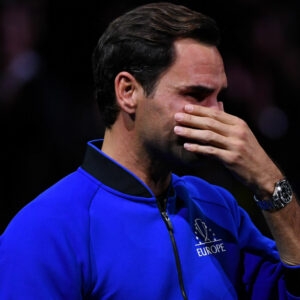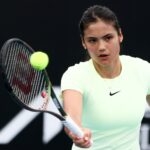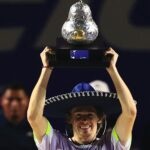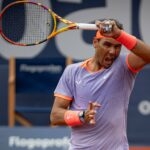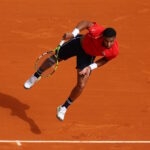Exclusive with Ljubicic, Federer’s coach : “Roger gives you the keys to play with his tennis”
On the eve of Roger Federer’s last professional match, his coach Ivan Ljubicic spoke exclusively to Tennis Majors, sharing some of the secrets from their time together and reflecting on some of the glorious and painful memories from their years together
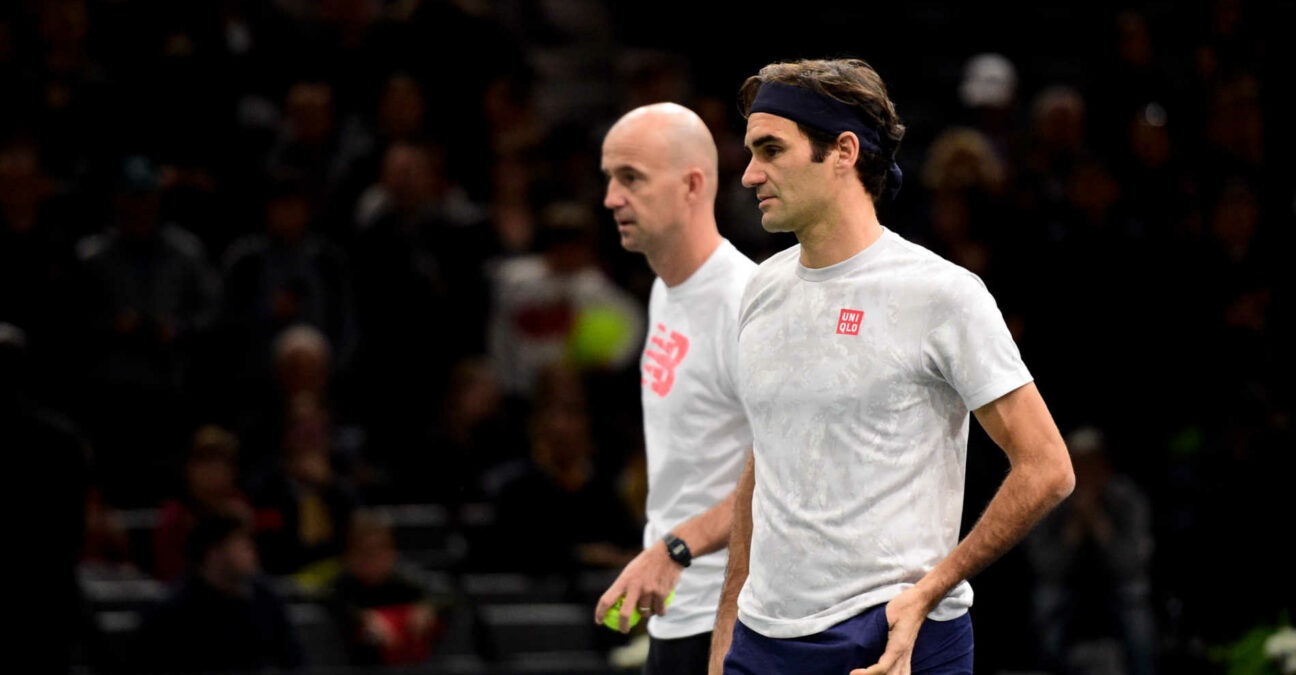 Ivan Ljubicic and Roger Federer, Paris, 2018 | © JB Autissier / Panoramic
Ivan Ljubicic and Roger Federer, Paris, 2018 | © JB Autissier / Panoramic
“A wonderful human being. Genius. Sport. Excellence, in everything he does”. That is Roger Federer, as per his coach and friend Ivan Ljubicic, in three to five words.
Rivals for more than a decade, they managed to nurture their friendship on the Tour for years. Ljubicic first retired and coached Milos Raonic for two and a half years, before partnering with Federer in December 2015.
Together, they ended Roger’s Grand Slam title drought at the 2017 Australian Open, and then went on to win two more Slams extending Federer’s total to 20.
In an interview with Tennis Majors, Ljubicic opened up about the beginning of their collaboration, walked us through their greatest win (over Nadal in Melbourne 2017) and the most painful loss (to Djokovic in Wimbledon 2019), talked about how Federer empowered his coaches, the future and many other interesting topics from their years together.
Tennis Majors: You said that you were surprised when Federer asked you to be his coach, but that the conversation swiftly moved to tennis. What did that tennis talk look like?
Ivan Ljubicic: Basic stuff – my perception of his game and how he should play, what he can improve, do I feel that he can still win Slams, etc. A few weeks later, we were in Dubai together. The thing is – even before all that, we were really close and we talked about tennis numerous times, so there was no need for a trial period of sorts. Roger knew exactly what he can expect of me – the way I see tennis and the way I am as a person.
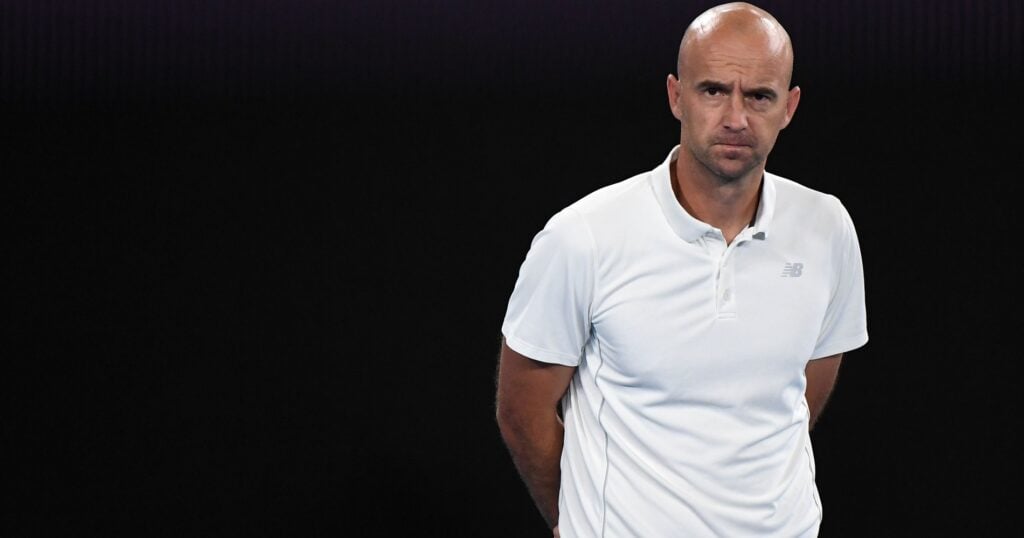
Tennis Majors: At that moment, what were your initial insights?
Ivan Ljubicic: Well, I thought that he was spending too much time at the net during his collaboration with (Stefan) Edberg. Also, I thought that he should not slice as often – yes, slicing can be useful for getting you in a position on the court that you want to be in, but generally speaking, you run more and you defend more when you slice often. Of course, it depends on the opponent: you should slice all the time against Mannarino and never against Nadal.
It was more about the process: you start to work with someone, you spend time together and work day in and day out, and then you start to put the mosaic together. To sum it up, I always believed that Roger is at his best when he is standing on the baseline and being aggressive.
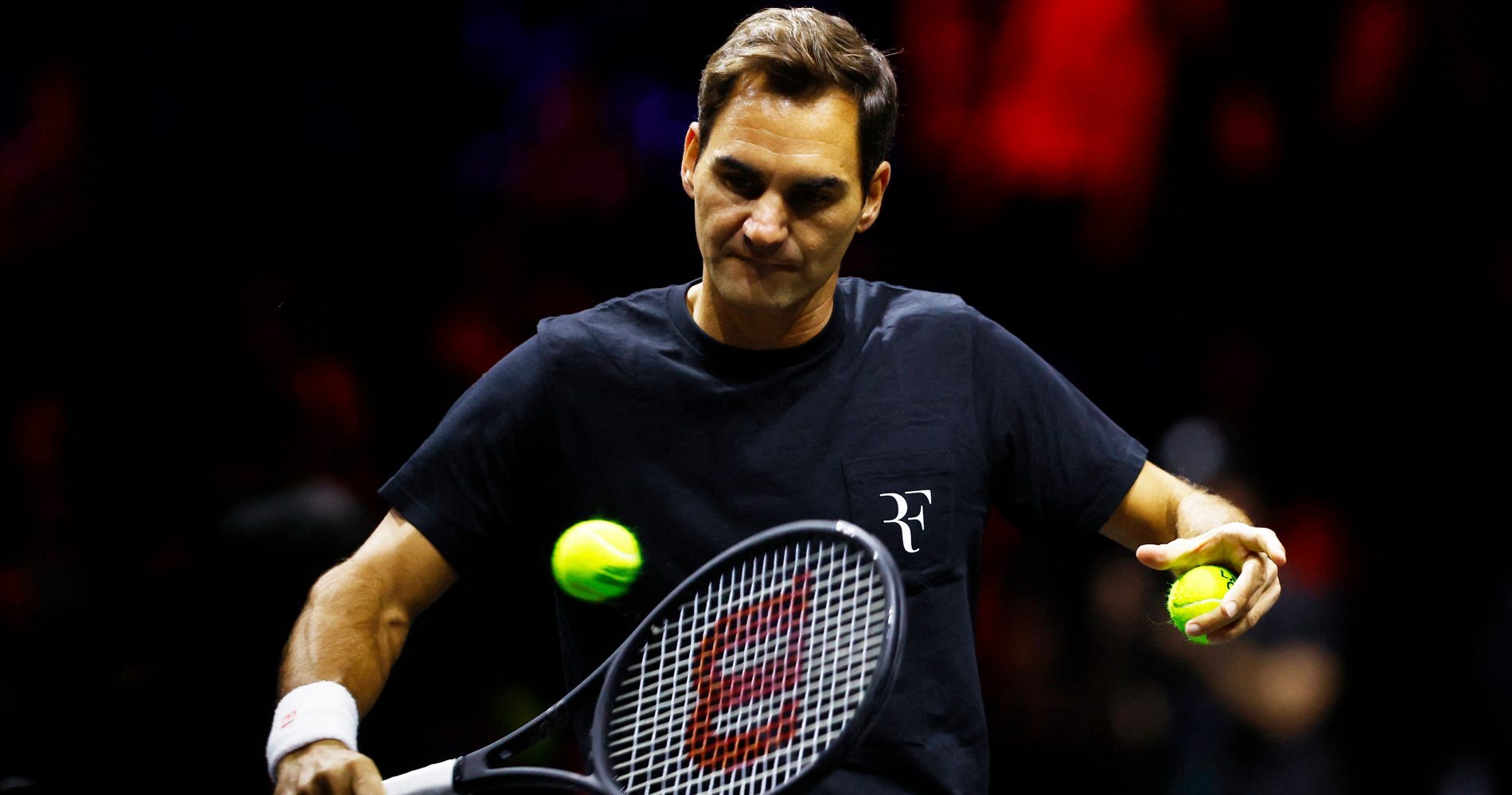
Tennis Majors: What fans often wonder is how is it even possible to help greats such as Federer, Djokovic and Nadal.. what is it that they do not know? What is it about your tennis mind that appealed to Federer?
Ivan Ljubicic: Maybe it was not about my tennis mind at all! You have to ask him, but maybe he just trusted me. Being a coach at that level does not consist of saying “you need to hit backhand like this” or “do this”, like it is with juniors for example. No, at that elite level, it is more about spending time together and maybe changing the way a player thinks at some point.
Too many times I have heard commentators on TV say “oh, the coach has changed this for him” after they spent a month together. There is no way that I can tell what Goran (Ivanisevic) and Novak (Djokovic) are working on, what (Carlos) Moya and (Rafael) Nadal are working on, you simply cannot tell so easily. Perhaps even they themselves would have trouble explaining – we have to go back to what I said – spending time together, practicing, and then it sort of comes naturally.
If I told him to try a two-handed backhand, he would try it.
Ivan Ljubicic
I will try to illustrate it: imagine a giant globe that you can only push slightly left or right, but you can change the direction it is heading. Still, that small change can reap exquisite rewards because we are talking about players that never lose early: the only difference is whether they make it to quarters and semis of a Slam, or they win the title.
Tennis Majors: Listening to your interview for “The Tennis Podcast”, you said something that really caught my attention: “Federer gives you the power to help him”. Can you elaborate on that?
Ivan Ljubicic: It is just that you have the feeling that he soaks up everything you say and he is always open to trying new things. If I told him to try a two-handed backhand, he would try it. Roger is aware that his strong character and charisma can cause people to be in awe of him, so he is trying to make it easy on the coaches: he really wants to hear the truth, to hear what is it that you really think and he is not interested in you telling him what you think he would want to hear. He always made an effort to communicate that to us, that we can tell him everything we think, and that then it is up to him to process that information.
Tennis Majors: You mentioned things like less slicing, you gave us the giant globe metaphor, but if you had to single out a couple of more details you changed, what would those be?
Ivan Ljubicic: I did not change anything, I think that I was there to help him make the best possible decisions. For instance, let us talk about the Australian Open 2017 finals against Nadal. We had two full days to rest, we spent hours talking about the match, but as a coach, you do not know which one of the hundreds of pieces of information will stick and will turn out to be useful in the match.
There is no simple recipe, not banal advice such as “you need to volley with more (or less) rotation”, it is more about understanding the situation and trying to be the best that you can be. For instance, before Roland Garros 2018, we tried having Roger stand very far behind the baseline for the return, just like Rafa, because we thought that was our best course of action at that moment.
Going back to what I said earlier: Federer gives you the keys to play with his tennis, to give him your insights and then you decide together whether the idea is worth trying or not.
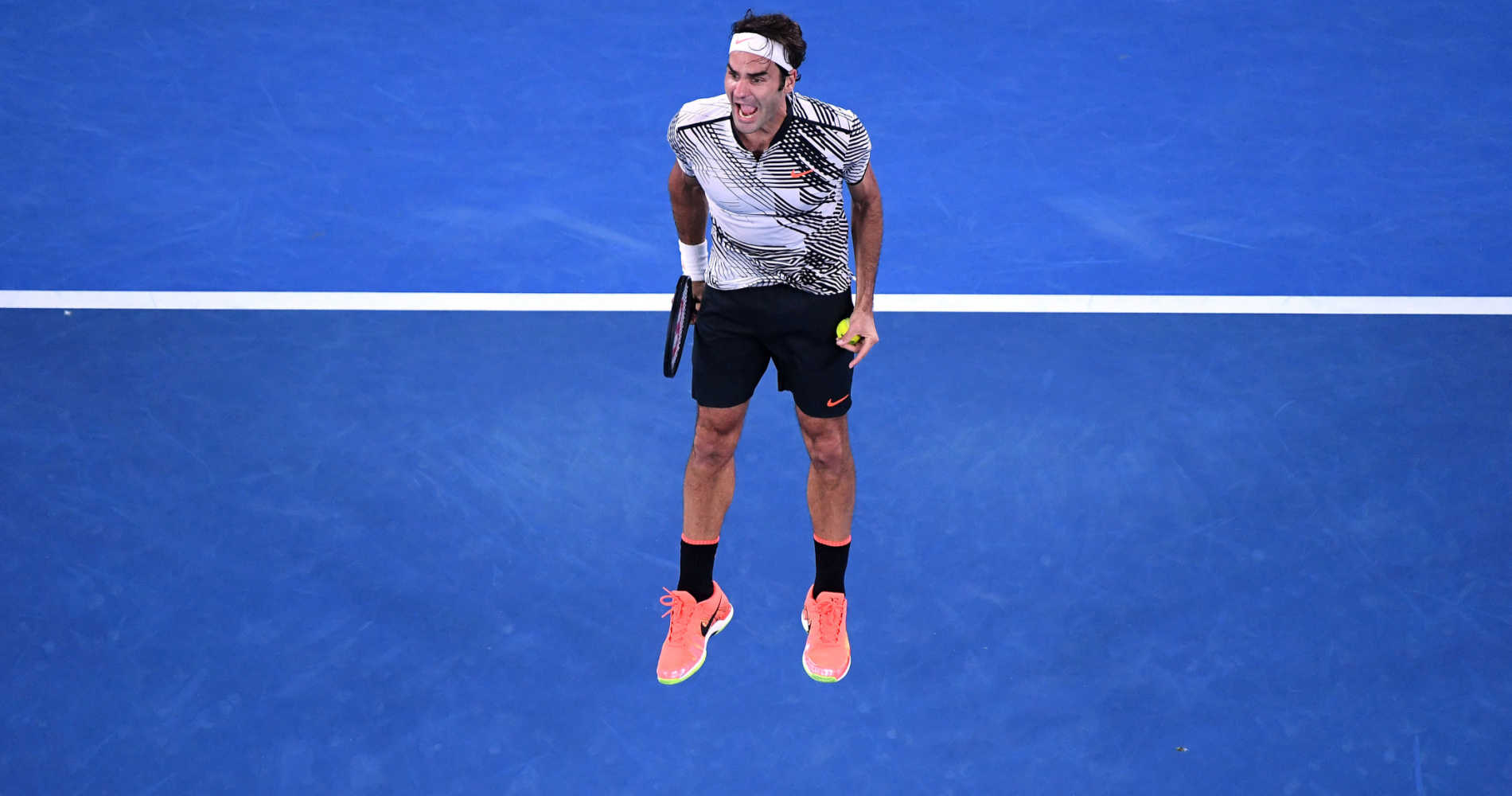
Tennis Majors: That final in Melbourne against Nadal was my next question. So, what piece of information “stuck” in the end?
Ivan Ljubicic: I think that everybody saw it. He accepted the fact that he needs to play more through Nadal’s forehand, he flattened out his backhand and he stayed focused on the ball, not on the opponent. At that time, his head-to-head with Rafa was very negative, there were scars there, so these things meant a lot.
Above all, he played with the conviction that he could win, which was most important for me as a coach. I was worried in that regard in the fourth set, but when I saw Roger at the start of the fifth set – even though he was 3-1 down – I was calmer because he was playing in the right way and I knew that he had a chance. In the end – he won. It was a very emotional victory, because he had not won a Slam for four and a half years before that.
He always believed that he would win if he did all the right things, so he never needed a lot of matches to start to feel comfortable on the court.
Ivan Ljubicic
Tennis Majors: Before that title Roger had not played for six months. You did say that he practiced well for most of that time, but what did it take to restore the faith that he could win a Slam again?
Ivan Ljubicic: A lot of things came together. It is true that he did not play a tournament for six months, but he started to practice very quickly after Wimbledon 2016. We were able to put together five months of quality work, which led to an amazing year and a half for him. How did we believe? Well, we believed because usually quality work is followed by big results, any coach will tell you that.
The problem with tennis is that it is really hard to stop and say “now I will practice for four months, I won’t be playing any tournaments”, but usually the results come after a prolonged period of practice.
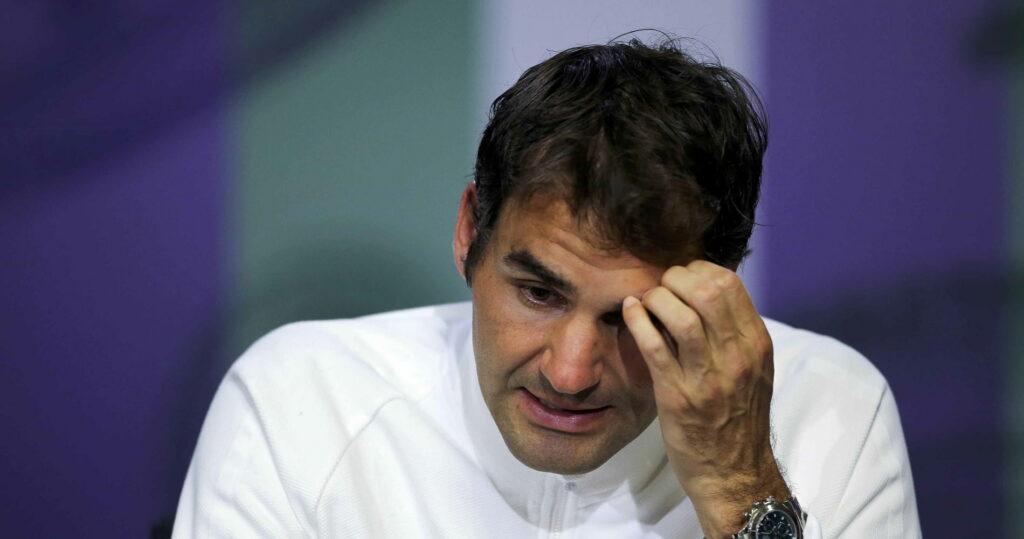
Tennis Majors: You just gave me a cue for this question. Throughout his career, Federer was well-known for the fact that he does not need much to get his engines going, he never needed a lot of matches to reach his best level. What in his game and in his personality allowed him to do that?
Ivan Ljubicic: I think the reason lies in his character, the trust he has in the whole process, people around him and – himself, of course. He always believed that he would win if he did all the right things, so he never needed a lot of matches to start to feel comfortable on the court.
That was a huge advantage throughout his career because it allowed him to take breaks and mini breaks – three to five times a year he would just rest and reset. I think that is one of the main reasons he was able to last this long.
Tennis Majors: The most painful defeat you had together was the 2019 Wimbledon finals loss to Djokovic with Roger having been two match points up. How did it look in the locker-room afterwards, how does one find the right words in those circumstances?
Ivan Ljubicic: We were only briefly in the locker-room because he went to the press conference. We went home afterwards and ended up celebrating that final, being in the finals. Of course, in the beginning the atmosphere was not too bright, but we managed to turn it into a positive moment. How? You call some people, you call your friends, you play some music – it was a bit “fake it till you make it”, but it ended up being a great atmosphere.
I mean, it was not a tragedy of epic proportions, but it was a big shame because he played magnificently and I was proud of him as a coach. He was close, but you win some, you lose some. We moved on. In the end, it turned out to be his last big opportunity to win a Slam, but we did not know that at the time – we believed that we would have one more chance.
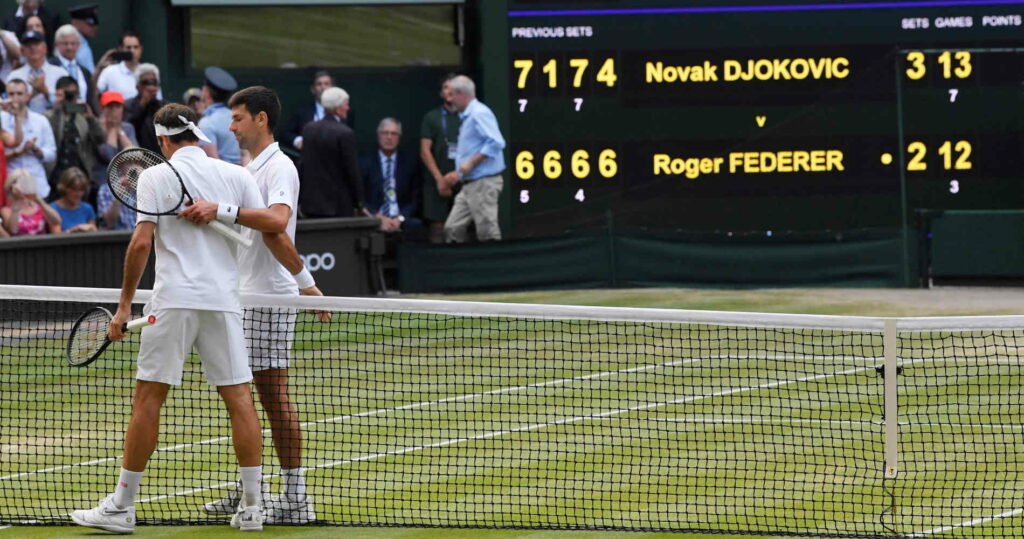
Tennis Majors: I know that it is hard to pinpoint something when one point decides, but what do you feel was the key in that match?
Ivan Ljubicic: I do not know if there was a key, to be honest. It is just that someone had to win – they kept each other going until the very end. If it was some other sport, it would have been a draw or a tie. This way, Novak won.
The thing I was most sad about is that Roger played phenomenally – two sets he won, he did so easily, and in the other three he was either the better player or he was there. But OK, throughout his career he had won a lot of matches where he was not at his best, so we cannot complain.
In the 2019 finals, he was at a million percent! He was at 60-70 percent in Wimbledon 2021, which I think was obvious.
Ivan Ljubicic
Actually, at that time we mentioned Roland-Garros 2009 – the only time he won in Paris – he was two sets and a breakpoint down to (Tommy) Haas in the fourth round, so it could have happened that he never wins Roland Garros. When you play over 1.500 matches in your career, you get all the scenarios, but this was Wimbledon finals, everyone was watching and it is normal that everyone thinks about it.
Also, I would just like to clarify one thing I am being misquoted on – I never said that Federer was at 60-70 percent of his abilities in the 2019 finals, he was at a million percent! I said that he was at 60-70 percent in Wimbledon 2021, which I think was obvious.
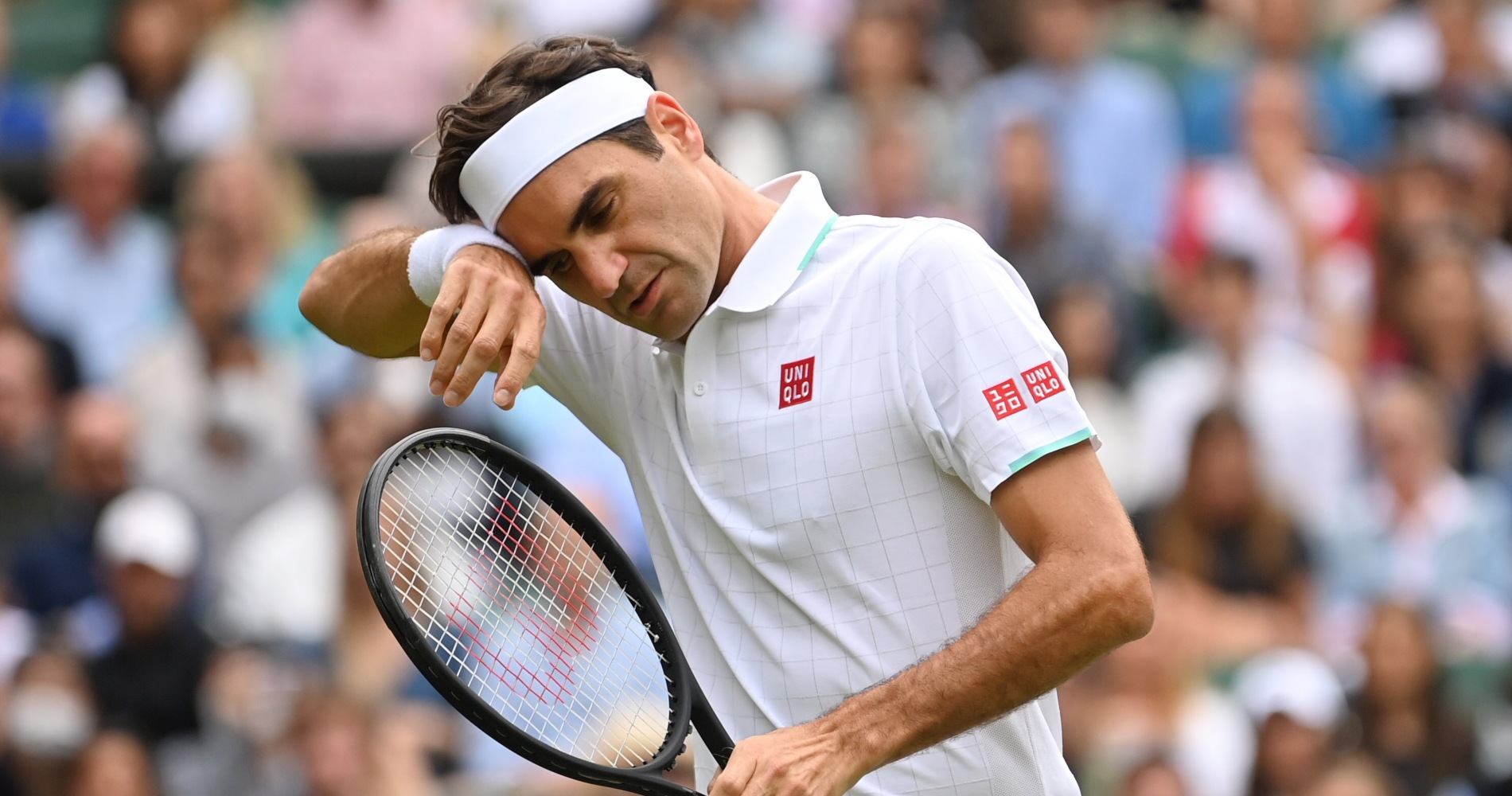
Tennis Majors: Going back to the present day – what level can we expect to see Roger on Friday?
Ivan Ljubicic: I watched him practice and he was good – he feels the ball well, he hits the ball well. Physically I cannot really tell, but it is only doubles, so it won’t matter that much. I am sure that it will be a spectacle.
Tennis Majors: How hard it is for Roger that he was not able to retire on his own terms, with the injury making him do it?
Ivan Ljubicic: It is not ideal, but considering Roger wanted to play tennis until he was one hundred years old, this was the only way for him to stop. There’s no way that he would ever stop on his own! It was only a matter of time when he would not be able to continue and that time came now. (Andy) Murray said it nicely in the press conference – the Big 4 in the same place, with Borg, McEnroe, Laver and others – there are not many better ways to say goodbye. I am bracing for an emotional evening.
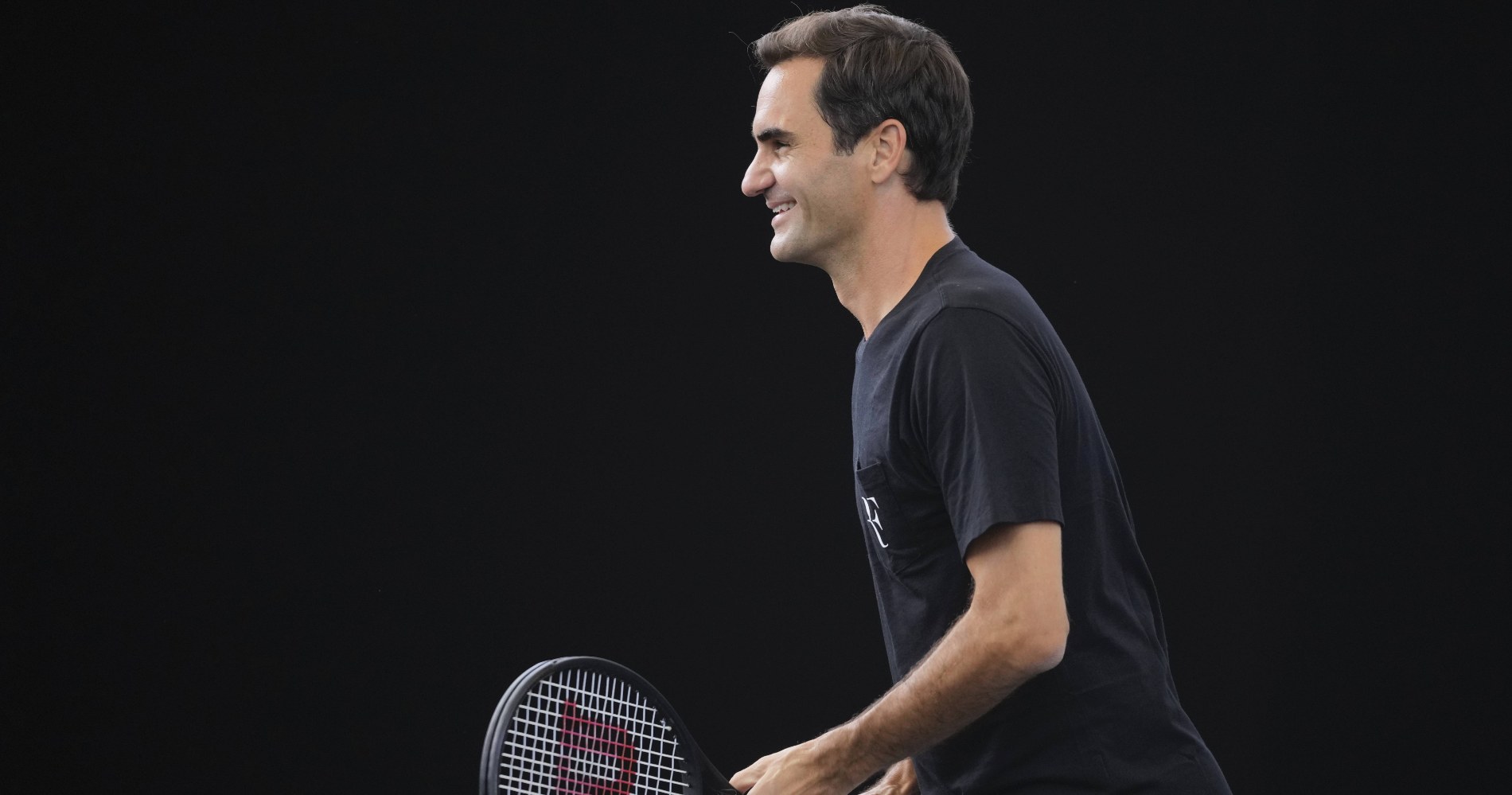
Tennis Majors: You know Federer really well – do you think that he will be a coach in the future?
Ivan Ljubicic: He definitely won’t travel 30+ weeks a year. He is a guy that adores tennis, so I am sure he will be open to offering advice to a certain circle of people. I imagine that he will help young Swiss players and things like that.
Tennis Majors: Here is a question we will never get a final answer on, but what are the criteria for being the Greatest of All Time (GOAT)?
Ivan Ljubicic: I do not know what the criteria should be and I do not think that there is an answer. What constitutes “the greatest? Is the most successful the greatest at the same time or is that not the case? Roger, Novak and Rafa, all of them have done things that will never be achieved in the future. They have taken this sport to amazing heights, so there is no reason to even search for that GOAT answer.
Roger won’t win most Slams, but we will see whether he ends up with most titles overall between the three. I think that you cannot ignore the fact that he was voted Fans’ Favorite for 19 consecutive years… Maybe it is most weeks at No 1, maybe it is the Slams – those are the most important, but they cannot be the only measuring stick. I have no clue who is the GOAT, to be honest. It is just like in football, it is impossible to know who was better – Pele or Maradona, Messi or Ronaldo today.
I think that anyone who follows tennis has their favorite among the three of them, and everyone can easily make the argument that their guy is the GOAT. Their achievements are just “sick”.
Tennis Majors: Finally, how would you describe Roger in three to five words? I did not say “in one or two” on purpose, I wanted to give you some breathing space, haha…
Ivan Ljubicic: A wonderful human being (in Croatian/Serbian it is one word: “ljudina”). Genius. Sport. Excellence, in everything he does.
